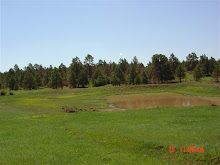Dispersant 'may make Deepwater Horizon oil spill more toxic'
It seems pretty counter-productive to be using a substance more hazardous than oil in an attempt to clean up the mess.
Guardian, May 5, 2010
Dispersant 'may make Deepwater Horizon oil spill more toxic'
Scientists fear chemicals used in oil clean-up can cause genetic mutations and cancer, and threaten sea turtles and tuna
By Suzanne Goldenberg
Chemicals used to break up the Deepwater Horizon oil spill before it reaches shore could do lasting damage to the waters of the Gulf of Mexico, environmental scientists say.
By BP's own account, it has mobilised a third of the world's supply of dispersant, so far pouring about 140,000 gallons (637,000 litres) of the cocktail into the Gulf as of today. Some of the dispersant has been injected directly into the source of the spill on the ocean floor, a technique never deployed before, deepening concerns about further damage to the environment.
The dispersants are designed to break down crude into tiny drops, which can be eaten up by naturally occurring bacteria, to lessen the impact of a giant sea of crude washing on to oyster beds and birds' nests on shore. But environmental scientists say the dispersants, which can cause genetic mutations and cancer, add to the toxicity of the spill. That exposes sea turtles and bluefin tuna to an even greater risk than crude alone. Dolphins and whales have already been spotted in the spill.The dangers are even greater for dispersants poured into the source of the spill, where they are picked up by the current and wash through the Gulf. More>>>






0 comments:
Post a Comment